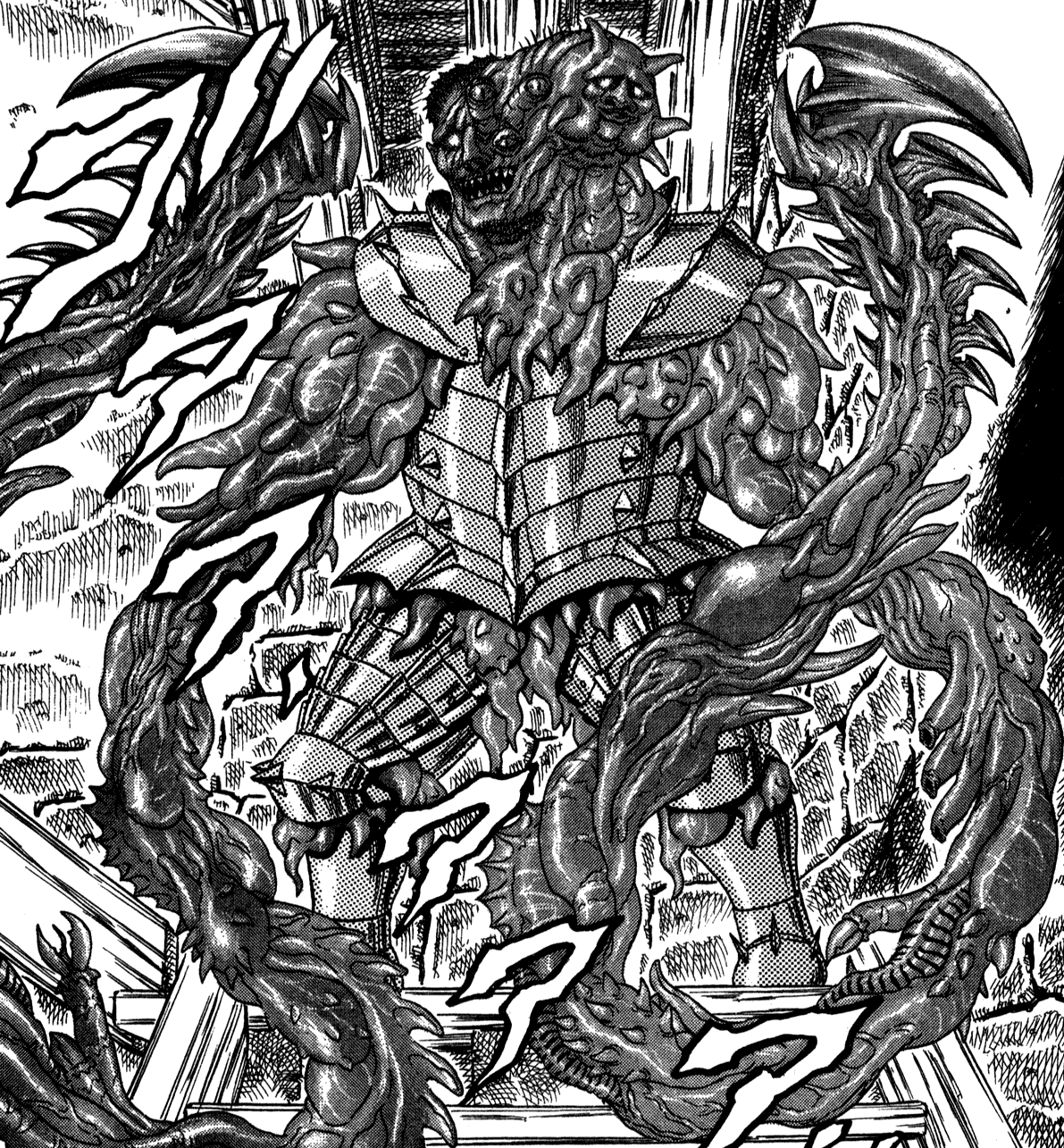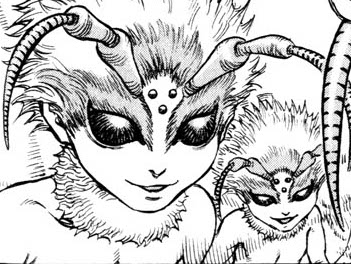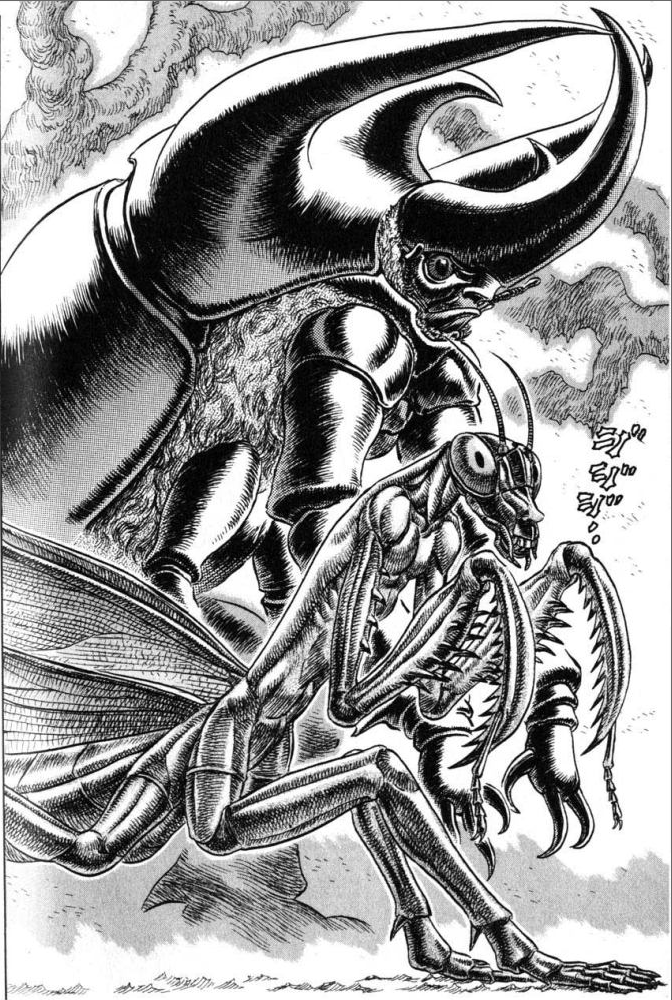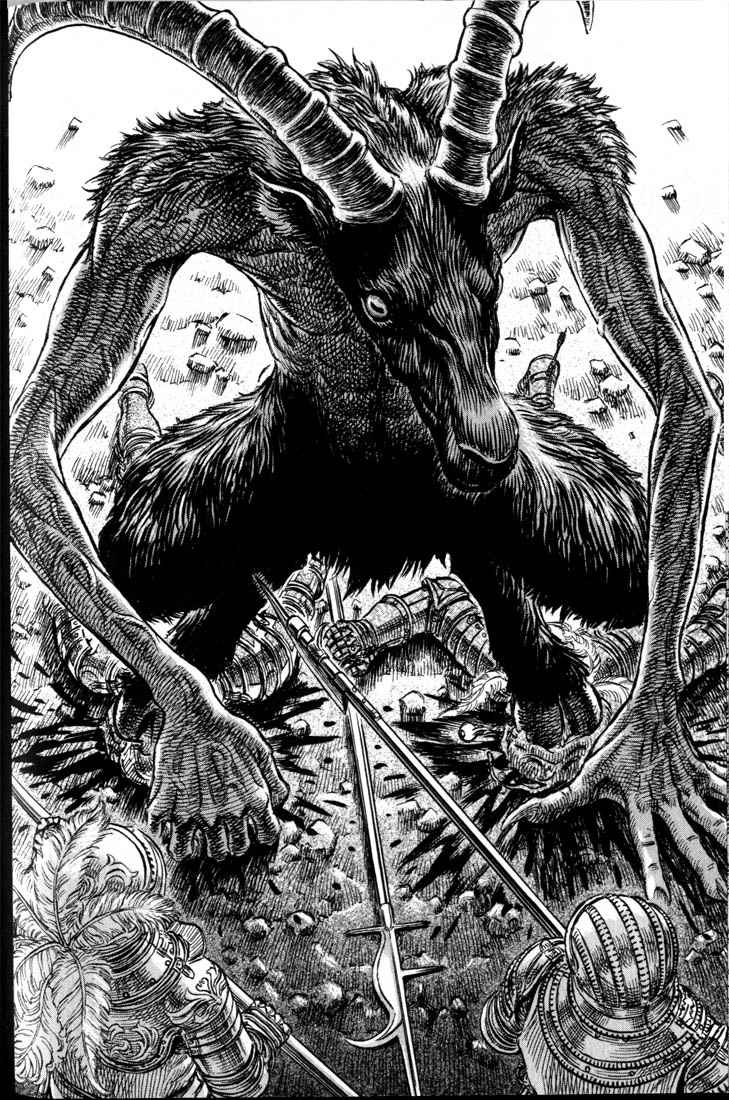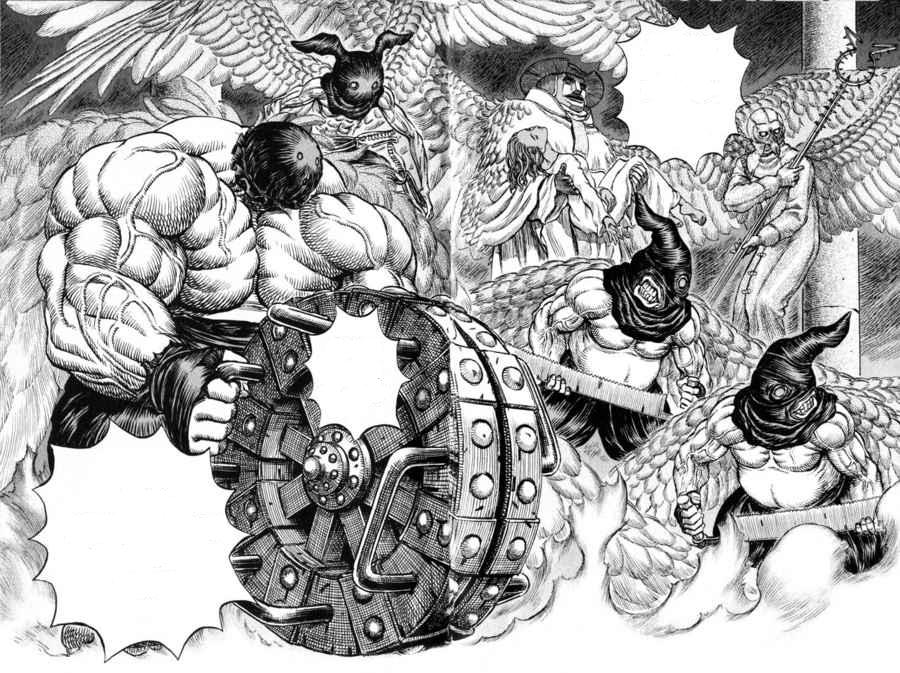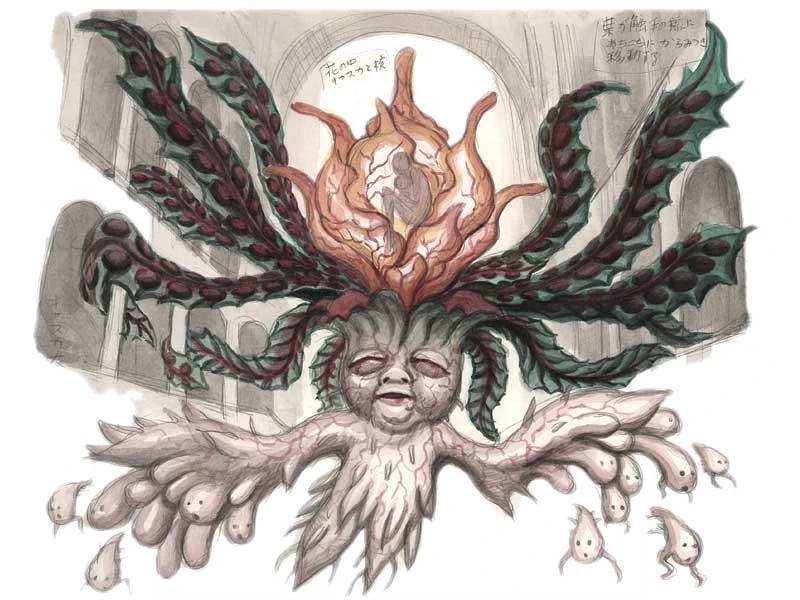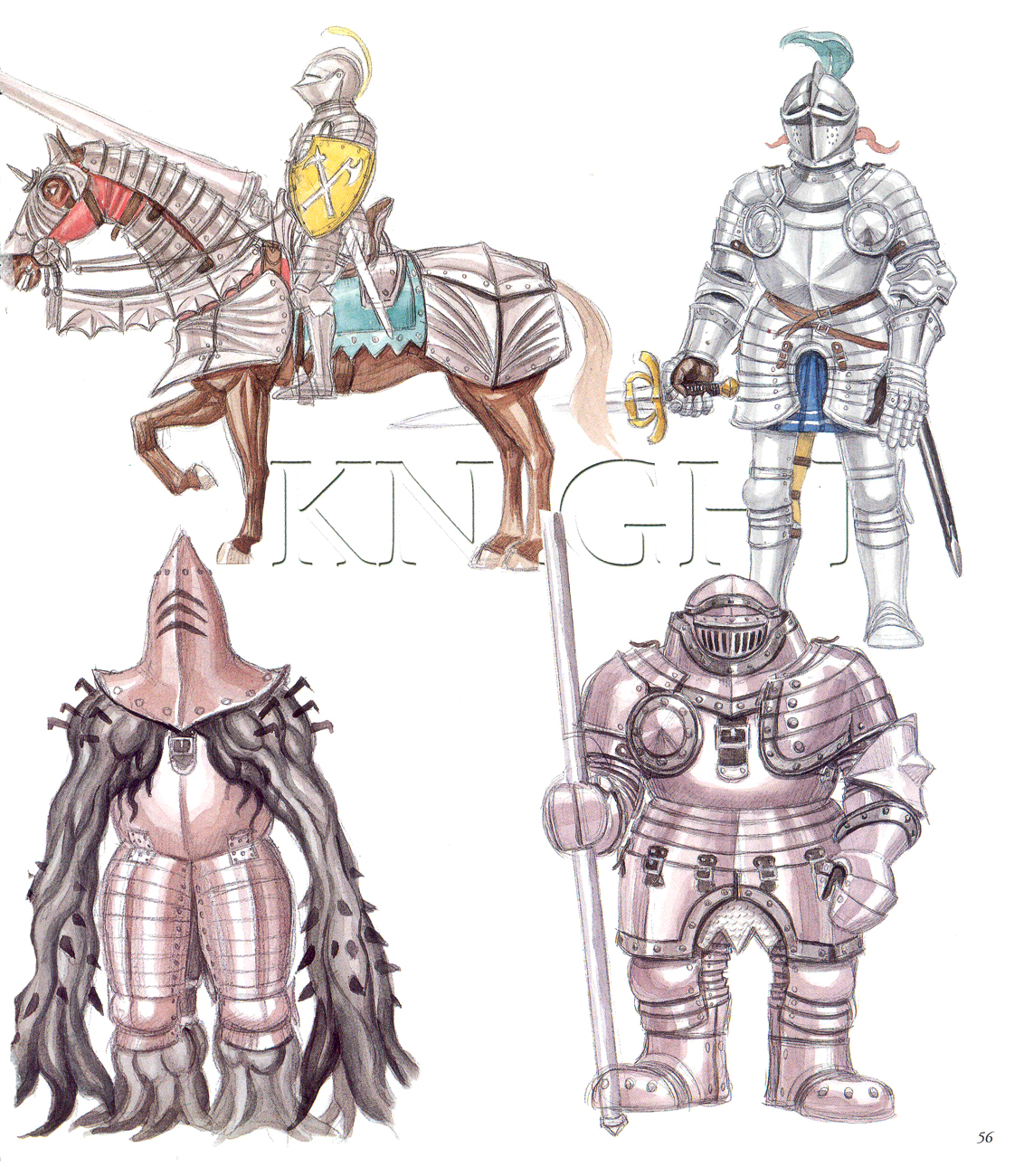Pseudo-Apostle (5e Creature)
Pseudo-Apostle[edit]
|
Medium fiend (any humanoid race), chaotic evil Armor Class 18 (natural armor)
Saving Throws Str +6, Con +6, Wis +6 Brave. The pseudo-apostle has advantage on saving throws against being frightened and charmed. Keen Hearing and Smell. The pseudo-apostle has advantage on Wisdom (Perception) checks that rely on hearing or smell. ACTIONSMultiattack. The pseudo-apostle makes two slam attacks. Slam. Melee Weapon Attack: +6 to hit, reach 5 ft., one target. Hit: 9 (1d10 + 4) bludgeoning damage. Regenerate. The pseudo-apostle regains 9 (1d10 + 4) hit points.
|
Certain apostles are capable of transforming humans into mindless killing machines only loyal to the apostle itself. While their power is only a fragment of an apostle's, their numbers are much greater and far easier to regrow, and what strength they have is more than enough to crush any normal human that crosses their path. Like the apostles that created them, pseudo-apostles revert to their human form upon death, leaving no evidence of the forces that controlled them. |
Known Pseudo-Apostles[edit]
Pseudo-apostles of the Slug Count, slug daemons are created by inserting the large slugs the Count creates into the mount of a living human. Slug daemons have 10 additional feet of reach, its slam attack deals slashing damage, and its regenerate action causes it to regain twice as many hit points.
One of Rosine's pseudo-apostles, elves of the Misty Valley were once children, now twisted by the magic inside Rosine's cocoons into her image of an elf. Elves of the Misty Valley have a 40 ft. flying speed, their slam attack deals piercing damage, and they may make a slam attack as a bonus action while below half their maximum hit points or frightened.
The other form of Rosine's pseudo-apostles, the guardians of the Misty Valley were mortal men willingly transformed into massive bug men by the venom inside Rosine's stinger. Guardians of the Misty Valley are Large, can speak, and have 152 (16d10 + 64) hit points.
A cult leader given an apostle-like transformation by the Egg of the Perfect World, the Great Goat has slightly more intelligence than a typical pseudo-apostle, having the clarity to be possessive over his cult members. The Great Goat can take the Dash action as a bonus action, its slam attack can deal bludgeoning, piercing, or slashing damage, can speak, and it gains the following action:
|
Originally the outcast followers of Father Mozgus, the Egg of the Perfect World granted them an apostle-like transformation, allowing them to keep their devotion to God and Mozgus in their pseudo-apostle form. Mozgus' disciples gain a 30 ft. flying speed, can speak, and one of the following actions, which can replace a slam attack when it uses its multiattack action:
With each step of Shiva Ganishka, the soldiers under his feet were instantaneously transformed into amorphous beasts bearing his own visage. Ganishka's spawn can use their regeneration action as a bonus action by consuming a corpse, are immune to the grappled and restrained conditions, are immune to necrotic damage, and are vulnerable to radiant damage.
The ripe humanoid fruit of Niko, the Heart of the Great Mandragora Tree, mandragora plagued Castle Balzac before Niko's death. Mandragora are plants instead of fiends, deal poison damage with their slam attack instead of bludgeoning damage, have resistance to piercing, acid, necrotic, and radiant damage, have vulnerability to fire and cold damage, and have the following action:
When a detachment of Castle Balzac's soldiers were sent into the depths below a small church on the edge of the baron's domain investigating the spread of the Mandragora, they were overwhelmed by the sheer number of spawn, who used their corpses as beds for more fruit, animating the bodies in their infancy. Mandragoran soldiers are immune to the effects of a critical hit, have 10 ft. of reach, and have advantage on Constitution saving throws. |
Back to Main Page → 5e Homebrew → Campaign Settings → Berserk → Bestiary
